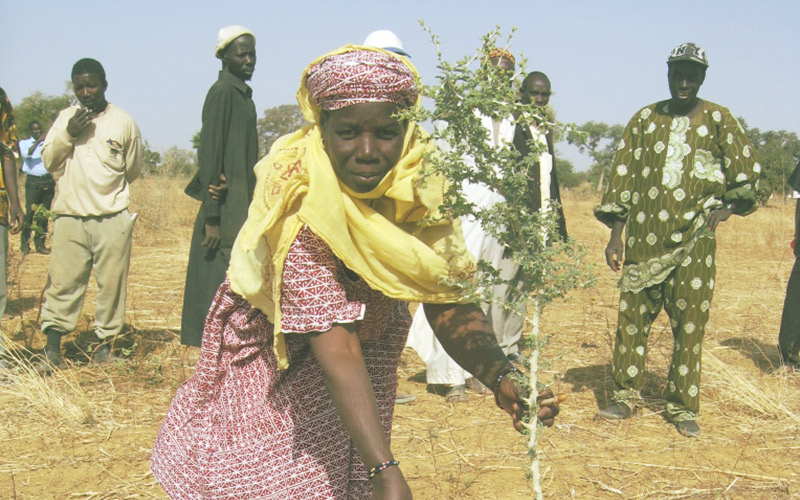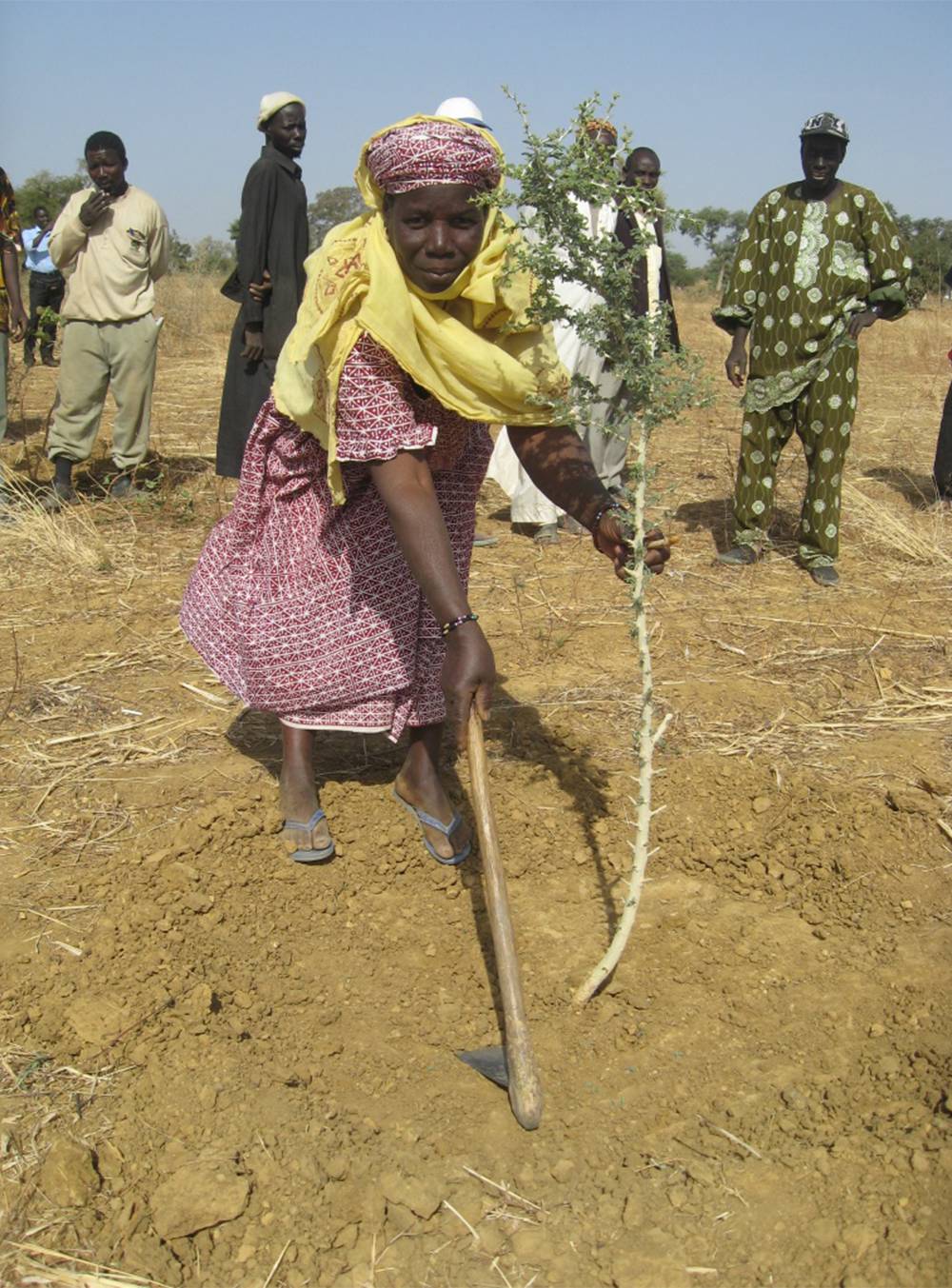World Vision
Eco-Agriculture in the Sahel
Mali
World Vision, with support from the Margaret A Cargill Foundation, is implementing the Eco-Agriculture in the Sahel project to improve community resilience, farmer livelihoods, and environmental stewardship. This is being done through adoption of Farmer Managed Natural Regeneration (FMNR) and complementary soil and water conservation (SWC) and conservation agriculture (CA) practices in targeted areas in Mali.
FMNR restores degraded agricultural lands and pastures, enriching soil, reversing desertification, enhancing groundwater recharge, and contributing to reforestation. Naturally regenerated trees, when properly managed, serve as a “simultaneous fallow” alongside growing crops, helping restore soil organic matter and soil cover through leaf litter. These trees also improve the soil’s ability to absorb moisture, and reduce erosion from wind and water. Dispersed shade provided by trees increases crop production by reducing the ill effects of extreme sunlight and high temperatures.
Increased availability of sustainably harvested firewood reduces the impact of women using crop residues for cooking fuel, further enhancing soil cover and organic matter and reducing the labor and expense of gathering wood far from home.
“We are satisfied with the impact of the regeneration of the village lands,” comments one female farmer from the village of Endé. “Today, all the wood we use for cooking comes from the village lands.”
FMNR-led agro-ecological farming practices also directly help landscapes adapt to climate change, as the natural environment is better able to cope with more variable precipitation, with both trees and carbon-rich soil acting as carbon “sinks.” SWC practices such as contour bunds and CA also improve water infiltration in soil, and soil fertility, and thereby increase the productivity, sustainability, and resilience of agriculture-based livelihoods. To date, 18,000 households have been targeted.





